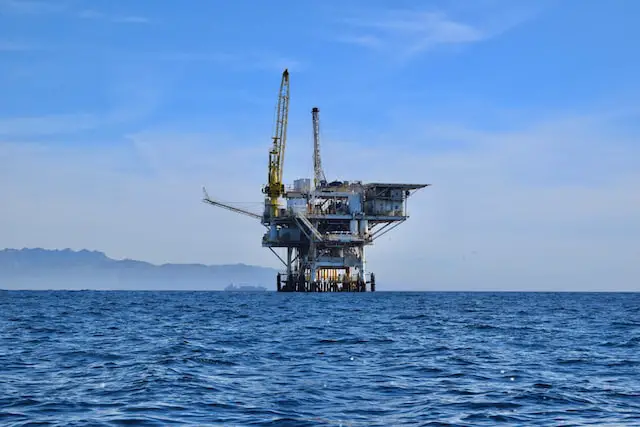Shell is a multinational oil and gas corporation located in the Netherlands and run by Ben van Beurden, its chief executive officer. In 2020, Forbes reported sales of $311.6 billion.
In 2020, Shell disclosed carbon dioxide equivalent emissions of 1,377 million metric tonnes. It is predicted that its planned emissions from 2018 to 2030 will account for around 1.6% of the global 1.5°C carbon budget.
Campaigners say that the company’s decision to aim for a 20% reduction in emissions intensity by 2030 instead of an absolute reduction in emissions in the near future is “basically putting off hard decisions.”
The company anticipates that its overall emissions from energy products will remain below what they were in 2018, but the global reduction in emissions of fossil fuels must be much greater than what it was.
Their goals are restricted to their own statistic, “Net Carbon Footprint.” Shell’s net-zero goal for Scope 3 only applies to its energy products. It does not include its other businesses, like petrochemicals, which make 17 million metric tons of chemicals every year.
This is despite the significant climate implications of the petrochemicals used to produce plastics. Additionally, some of the company’s significant fossil fuel trading procedures are left out.

Shell states that if the rate at which society alters its energy consumption accelerates, the company intends to contribute to this transition. If the rate of change increases, we will not be able to move as swiftly.
Also, the company won’t change its basic business budgets and plans until they are “in line with the march toward a net emissions economy in society and among Shell’s customers.”
It is not at all clear how Shell will decide on this, and if it so chooses, the company may essentially be able to opt-out of its obligations.
This method also ignores the fact that, through the Paris Agreement of 2015, the world’s governments agreed on a path toward a net-zero economy more than five years ago.
Carbon Offsetting
In addition to continuing to make fossil fuels, the company plans to make “nature-based offsets” and CCS, like planting trees, a much bigger part of its business.
Even though the targets based on the science Initiative criteria for climate action say that offsets can’t be used to reach near-term climate goals, this is still the case.
The company’s published plan for the world includes a big role for fossil fuels even in 2100, as well as a lot of CCS use and planting trees in an area about the size of Brazil.

This strategy has been criticized for being “delusional.” In addition, activists have warned that depending on massive tree plantations as offsets have its own detrimental environmental effects.
Businesses must “prioritize decreasing their own emissions” first, according to best practices for offsets.
They were responsible for a lot more CO2 emissions in 2020 than the twenty-five million metric tons it wanted to absorb by 2030 and the one hundred twenty million metric tons it wanted to “offset” by 2030.
Is This A Case Of Greenwashing?
It is hard to believe, yet it must be stated. The petroleum business is not your ally. No matter how ethical it says it is, as long as it keeps investing in fossil fuels, it speeds up climate change and the end of the world as we know it.
One would assume that this fact is self-evident to everyone. In contrast, I have spoken with hundreds of environmentalists over the past few weeks who appear to believe that Shell is on their side.
Mark Rylance gave a great speech last week about why he was leaving the Royal Shakespeare Company because it was sponsored by BP.
The oil business subsidized inexpensive tickets for young people. The world that these young people will inherit may be in shambles, but they can watch some wonderful television. This consists of bread and circuses, minus the bread.

Shell announced a $300 million fund for “investing in natural ecosystems” over the next three years two months ago.
It is claimed that this will “assist the transition to a low-carbon future.” It wants to pay for replanting to make up for some of the greenhouse gases it makes by getting oil and gas.
In conversations with environmental activists from throughout the world, I consistently hear the same theme: Shell is reforming, and Shell is honest; shouldn’t we support it?
The fund is big, but it’s not even close to what Shell makes every year, which is $24 billion. In its annual report, Shell’s shift to a low-carbon future is almost unnoticeable.
It does not include renewable energy in its summary of financial outcomes. When I inquired with the company about its income from low-carbon technologies, it informed me that it did not have a specific figure.
Neither could it tell me how much it had invested in them in the previous year. In 2018, though, it spent $25 billion on oil and gas, including looking for new fossil fuel deposits in the Gulf of Mexico and off the coasts of Brazil and Mauritania.
It has 1,400 mineral leases in Canada, where it makes crude oil from tar sands using synthetic crude oil.
Conclusion
Shell’s strategy is so obvious that it is barely debatable. It wants to stay in the business of fossil fuels, but it has to fight against regulations that could stop it.
If the company is unwilling to quit its cash generators, it must alter how people see its activity. In my opinion, Shell’s natural ecosystems fund is blatant greenwashing.
However, the company’s strategy is effective. A stunning number of people who should be opposing Shell instead view it as a greener option to Exxon, having been misled by the company’s sleazy investments.

